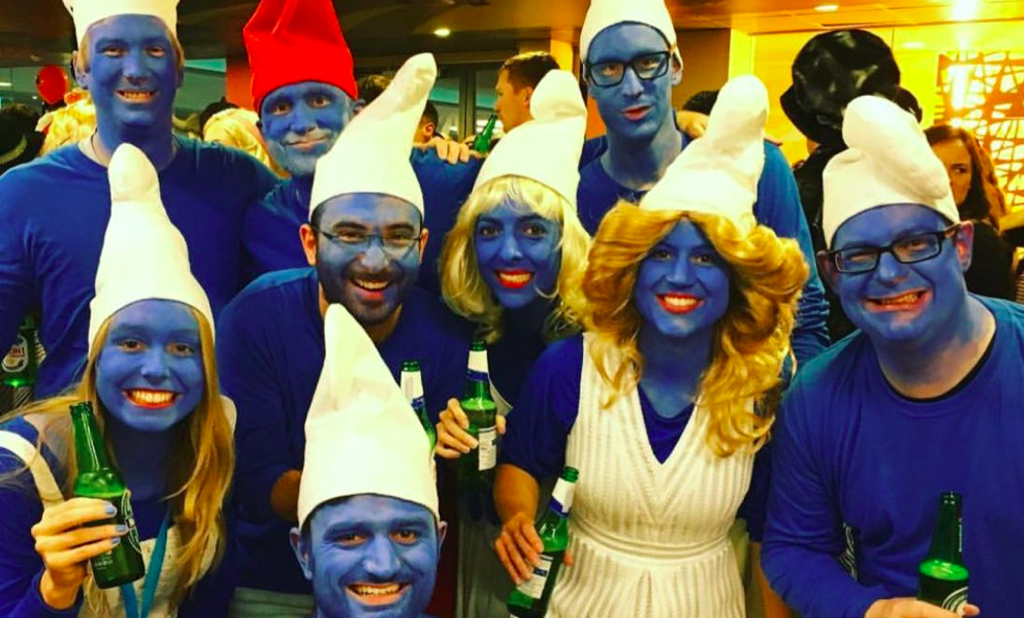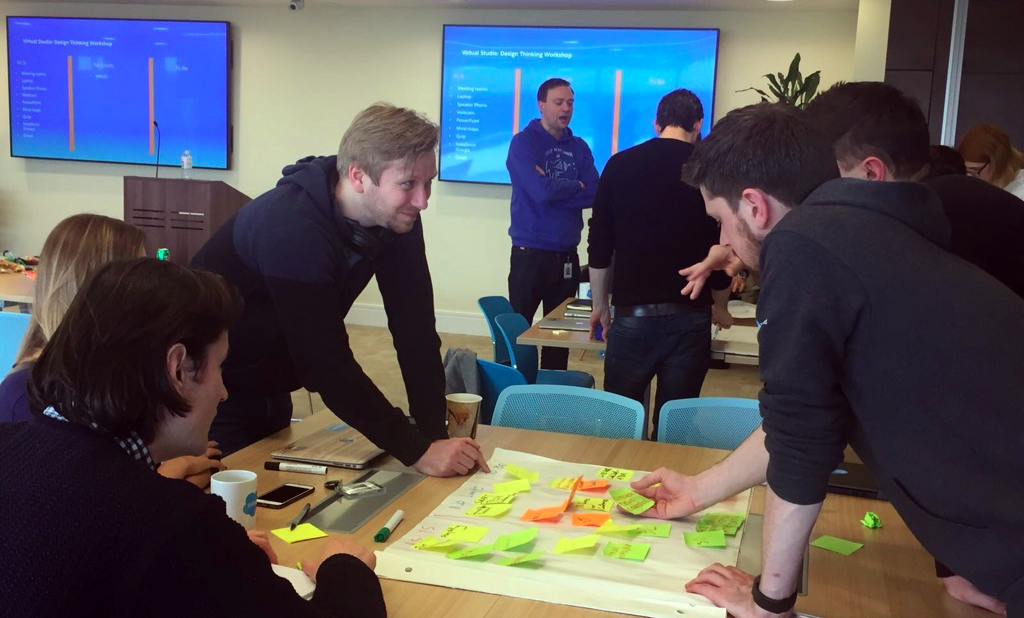We love showing off the awesome members of our #SalesforceOhana and sharing their inspiring stories. Today we caught up with Tim Bergers Solution Engineer (SE) to understand his journey from student to becoming an SE here at Salesforce.
How watching German cartoons helped me get my dream job
A little over four years ago I was a graduate freshly done with my studies, and thinking the world was at my feet. Let’s just say that after a few months this belief quickly faded, and when at one point I was approached by a fellow graduate who had started at this big tech company with the sentence “They need Dutch people, are you still looking?” - I was quick to respond with a “Yes!”.
Within two weeks I had spoken to all the people involved in the process, and thanks to the recruiter noticing I also had German on my CV, a wonderful German manager decided to take a chance on me, and so I ended up in Munich as an intern supporting a well oiled business development machine. It was quite a risk, given i'm a Dutch guy that learned his German by basically watching german TV as a kid!
Even though, I had no experience in either the industry or business development, the entire team, all with years more tenure in both the IT & Sales business were absolutely awesome in mentoring me. This mentoring mindset is something I encountered throughout all the promotions and the move to Dublin since I started at Salesforce. Every time I went up, there were new people more knowledgeable than me, that showed me the ropes in a supportive but challenging way.

I owe both my career and my quick progression through the ranks to these people
Just over a year ago I applied for a role in Solution Engineering, a department that was always associated with very technical people. Guess what, I am not technical. As soon as I started to show that I was willing to set time apart next to my existing role, and that I was willing to learn, and could add value in other ways, all kinds of people took me under their wings.
So what happened since I started as a Solution Engineer
When I started as an SE I had some knowledge of the platform, but my value at the beginning (again...) was seen within me being able to speak German and, the discovery skills I had built within my busioness development role. With what felt like almost no time after unpacking my moving box, I was already allowed to do discoveries with, and demo to, people at one of the biggest tech events in the world: CeBit in Hannover, Germany.
What are discovery skills you say? All organisations have either goals or challenges, most of them have both. Understanding all of the influencing causes and effects however might be hard, and they just need someone asking the right type of questions to bring these to light. The most important reason to do this is to make sure that we understand if we can help, and if, how this could look like using our platform.
This is still the main part of my job today, almost every day I have discoveries with awesome start-ups & scale-ups that want to get better at what they do. It is then our task to determine what the core is of their challenges, and how this translates to our platform, and could be presented back to a them. In this way, the solution we show is actually relevant business critical goals or challenges and will help the organisation build a business case internally.

There is actually something quite rewarding in coming to the core of the challenges, and helping a customer understand how our platform could help them. The good thing is that you never have to do this alone, there is a whole team of people around you that help with either product specific knowledge, or by giving advice on how they have dealt with similar challenges.
Next to these weekly Discoveries & Demos, more because I really like to do it, but only a few times per quarter, I will also present at events and conventions. The content will almost always be related to how we helped customers in certain segments or industries overcome challenges and helped them scale their business. The location and setting however varies quite a bit. I have presented to a room holding maybe only 20 people, but also in front of thousands of seats, fully miced up and multiple cameras pointed at my every move. This is however more of an exception than the norm.
Also, internal enablement and knowledge sharing is encouraged. Due to the experience you build over time working with many different organisations, you will start building skills and knowledge that hold value to your extended team, or different parts of the organisation. The other way round, there are always people to help you out, and show you how they have either overcome certain gaps in their knowledge or skills, or to simply have a chat over a cup of coffee to discuss the challenges of the job and possible career moves.
All of these activities are not just happening at random, there is a huge team of people that you interact with to make you and your aligned team more successful. This can vary from sales managers with whom you discuss the need for certain enablement or support of certain deals, to marketing with whom you discuss the format of events, to your own team with whom you decide where more training is needed, and much, much more.
Now I can imagine that this all seems a bit daunting at first, but if I can do this with help of others, so should you. And it WILL be worth it. Which brings me back to some points.
Why mentoring is awesome
Nothing is more rewarding than taking a chance on eager people with the right mindset.
Seeing people coming in new, thinking it will take ages to handle everything that is going on, possibly never being able to, let alone thrive in it. Seeing those same people grow to a level where they themselves are helping companies become successful and presenting to huge audiences about topics which change industries, is what makes me enjoy my job. Maybe even more than being that same person.
My advice to those hiring, both recruiters & managers, look less at all the bells and whistles on someone's CV, in the end it is the eagerness and willingness to develop yourself and feel at home outside of your comfort zone that will help someone master a role. The more different the background of people, the bigger chance they really want to prove themselves and show they can bring value from their own point of view.
To those still in the job market, have an opinion and show that you have the energy to turn things around into your favour, sometimes take those leaps of faith. The right people will spot you and give you a stepping stone. With some luck, they will become your sponsor and help you climb that career ladder.
To those that just starting, find those natural mentors and show you put their advise to good work, as you carve your path within the organisation, the relationship will become more mutually beneficial and in the end everyone profits!
Know someone who’d be the perfect addition to the #SalesforceOhana? Visit our careers site to view currnet openings.








